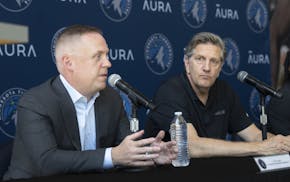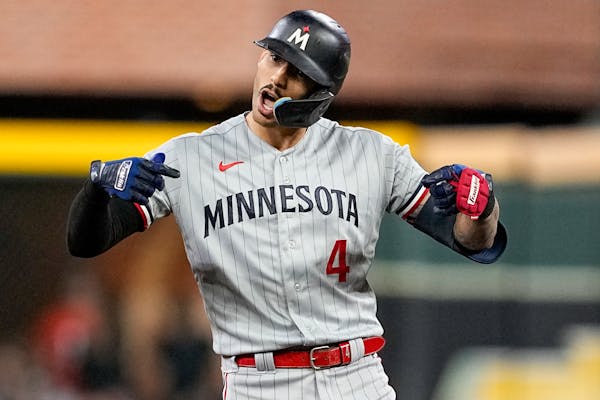Early Monday morning, after the Twins' chartered flight took off from Houston, Carlos Correa walked down the aisle, shaking hands and making eye contact, offering words of encouragement, such as "This is just the beginning."
Sunday night, he produced three big hits and the game-ending defensive gem in the Twins' 6-2 Game 2 victory at Houston against the Astros, his old team. In the stands, as some Houston fans jeered Correa, the children in the Twins' family section began a loud chant: "We Have Carlos!"
Those scenes, and that victory, were made possible by the Twins' CEO shortstop. "It feels great," Correa said Monday in the Twins' home clubhouse. "Feels great to be able to get some wins out of the gate."
During their record postseason losing streak, the Twins were haunted by Derek Jeter. In four Yankees playoff series victories, from 2003 through 2010, Jeter hit .351 against the Twins, bolstering his reputation as a clutch October performer and highlighting the Twins' failures under pressure.
Now the Twins have their own star shortstop, leader and October elevator, and he is writing a postseason résumé even Jeter would envy.
Correa has played four postseason games for the Twins. At the plate, he is 8-for-15 with three doubles, four RBI and a walk.
In his first postseason game as a Twin, he sprinted from behind second base to grab a rolling chopper near third base and throw out a Blue Jay at home, one of the most impressive fielding plays in Twins postseason history.
In his second, he orchestrated an inning-ending pickoff at second base, and drove in a key run.
In his third, he doubled and singled in his return to Minute Maid Park, where he became an October legend.
In his fourth, on Sunday, he went 3-for-4 with a double and three RBI and made a spectacular play on a ground ball hit by his Astros replacement, Jeremy Peña, to end the game, a 6-2 Twins victory that sent the series back to Minnesota tied at one game apiece.
Jeter was a Hall-of-Fame caliber shortstop who performed better in the postseason than in the regular season, a neat trick considering the pressure and elevated competition present in October.
Jeter hit .310 with an on-base plus slugging percentage of .817 in the regular season. He hit .308 with a .838 OPS in the postseason. He was considered a good and clutch fielder, but not an exceptional fielder.
Correa's career regular-season numbers: a .272 average and a .820 OPS. His postseason numbers: a .285 average and a .872 OPS. And Correa is a superior fielder with a superior arm who is with the Twins in part because they view him as an organizational leader.
"You don't win the World Series without superstars on your team," Twins pitcher Sonny Gray said on Monday. "Superstars show up in the biggest moments. It's kind of their life, right? It's how they live. Walking down the street, you've got 30 people on the other side yelling, so to them, it's just another day in the life. It's just kind of who he is.
"You see his demeanor change. You see the way he carries himself — he always carries himself at a very high standard, but just seeing him walk around, not on the field, he seems to be even a little higher than normal."
Twins manager Rocco Baldelli said he saw that the first day Correa showed up at Twins spring training in 2022.
"He's elevating his play and the team's play," Baldelli said. "But he spoke about this and prepared for this, his whole career, and also with our group since the day he showed up last year.
"He was very serious about it. We've talked endlessly about the first day Carlos Correa showed up in our locker room in Fort Myers. He came in and the second he got there, it wasn't about hugs and dropping his equipment off and laughing. He could not have cared less about that. He was getting to business. Guys were like, 'Whoa.' This guy is about being great. Not good. He's rubbed that off on everyone, including myself. I give him credit. There are few people that conduct themselves like that in everything they do, but that's him."
Late in the 2022 season, Correa met with reporters around his locker and made his case for a massive new contract, saying that when he wants something nice, he goes to Dior and pays the price. Through one of the strangest free-agent pursuits in history, the Twins wound up signing Correa after the Giants and Mets balked at his medical examinations for six years at $200 million.
That's a lot of money for a 29-year-old shortstop who is a good-not-great hitter with an injury history, and now it seems a bargain considering that Correa played through plantar fasciitis this season, remained a key member of the Twins' leadership brain trust, helped end their postseason losing streak and has given them a chance to advance to the ALCS for the first time since 2002.
Monday morning, Correa walked down the airplane's aisle, their captain all but handing out wings.
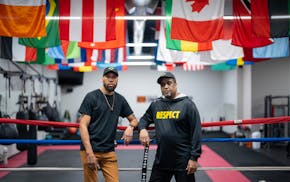
Minnesota sports stars reflect on George Floyd's legacy
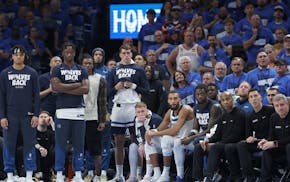
Souhan: Benching Randle is a big risk for Timberwolves
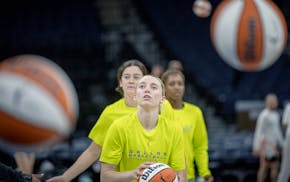
Souhan: Home to play the Lynx, Bueckers also can study a model for her career in Whalen
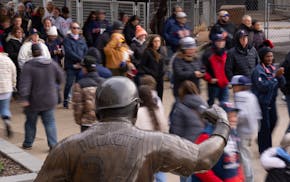
Souhan: Is Ant the next Kirby Puckett in Minnesota sports history?
